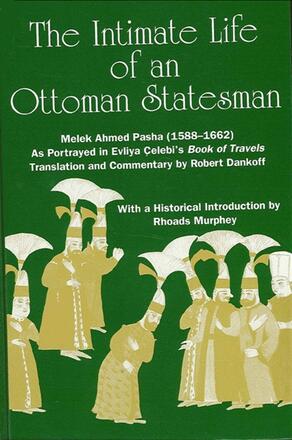
The Intimate Life of an Ottoman Statesman, Melek Ahmed Pasha (1588-1662)
As Portrayed in Evliya Çelebi's Book of Travels (Seyahâtnâme)
Alternative formats available from:
Highlights the private side of this public figure—his weaknesses as well as his heroics; his religious life and domestic affairs.
Description
Robert Dankoff has culled passages from Evliya Çelebi's Book of Travels that deal directly with the life and times of Çelebi's patron, Melek Ahmed Pasha, an outstanding seventeenth-century military and administrative leader.
Çelebi's account is sensitive to all the currents of his age and reflects them in his narrative. His wry comments and observations extend from the intimate details of daily life, and the attitudes of the lower classes, to the deeds of the mighty, the ideals of the age, and the fate of the empire. He concentrates on the later phase of Pasha's career, beginning with his appointment as Grand Vizier in 1650. Because Çelebi was Pasha's confidant as well as his protege, there is a level of intimacy, almost a psychological portrait, quite unusual in Ottoman and Islamic literature. The narrative highlights the private side of this public figure -- his weaknesses as well as his heroics; his religious life and domestic affairs -- in particular, his relations with his two successive wives, both sultanas or princesses.
Robert Dankoff is Professor of Turkish at the University of Chicago. Rhoads Murphey is Associate Professor of Ottoman History at Columbia University.